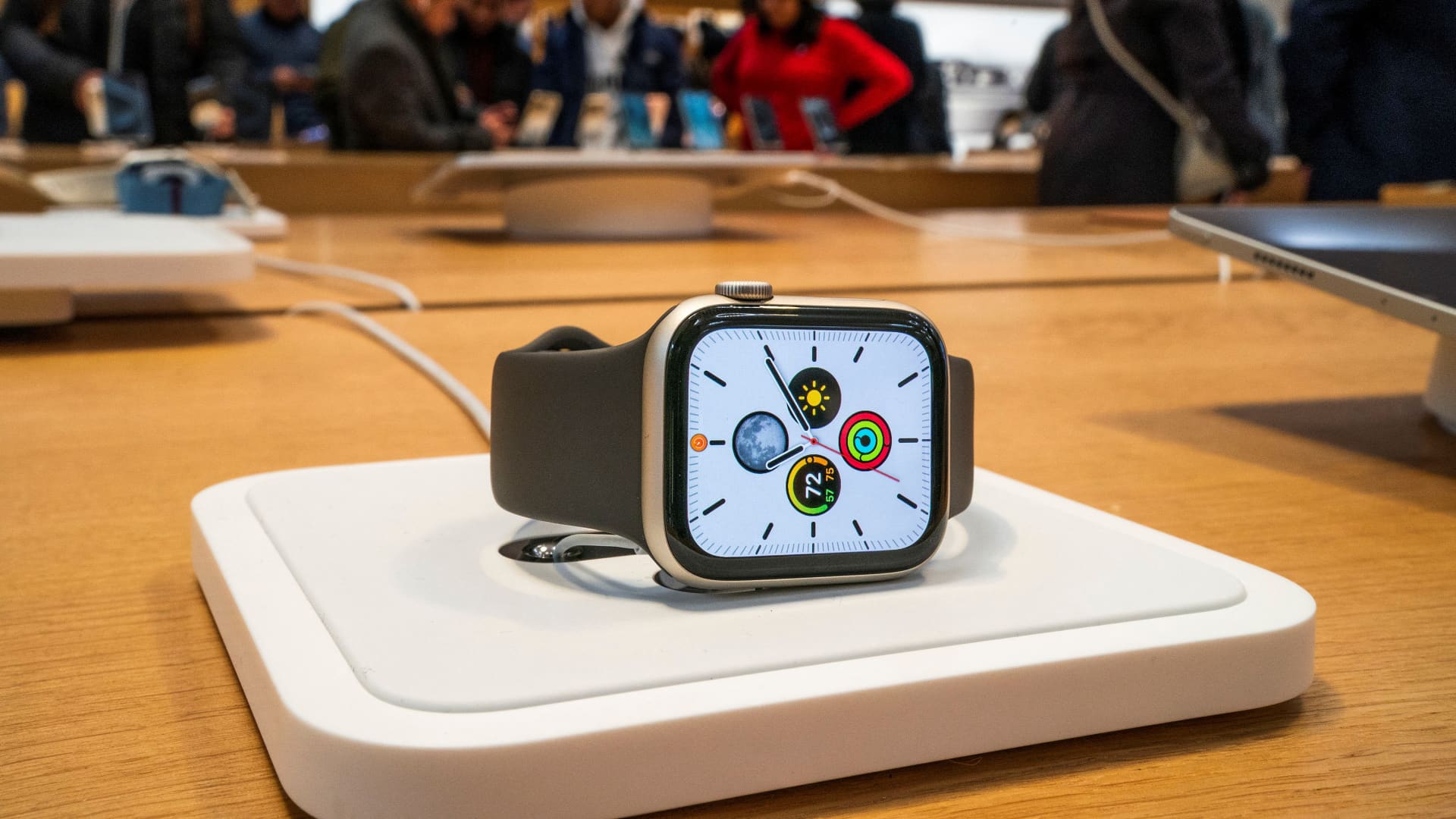
Apple smartwatches ads are displayed as customers take a look at smartwatch accessories at the Apple store in New York, U.S., December 26, 2023.
Eduardo Munoz | Reuters
Apple will again be barred from selling watches with blood oxygen sensors beginning Thursday, the U.S. Court of Appeals for the Federal Circuit said.
The court order Wednesday did not rule on Apple’s effort to overturn a U.S. International Trade Commission ban on the company selling the affected watches in the United States. But it lifted an injunction that had blocked the ban from taking effect while that appeal is pending.
The ban stems from an intellectual property dispute with Masimo, a medical device company. In October, the International Trade Commission found that Apple’s blood oxygen sensors had infringed on Masimo’s intellectual property.
Apple shares fell slightly in Wednesday afternoon trading.
The ban prevents Apple from importing the devices in question — both the Apple Watch Series 9 and Ultra 2. In December, Apple chose to briefly remove the affected watches from its online and retail stores, though retailers with those devices in stock may still sell them.
Earlier this week, court filings suggested that Apple had received approval from U.S. Customs for a modified version of its Apple Watches that lack the blood oxygen feature and therefore no longer infringe on Masimo’s intellectual property. It could open a path for a modified Apple Watch to return to U.S. store shelves. An Apple representative earlier this week declined to comment on the Customs decision.
Masimo had alleged that Apple had poached several of its top executives and copied its technology after declining a partnership.
Masimo CEO Joe Kiani told CNBC last month that his company is open to settling with Apple.
If Apple must continue to keep its latest smartwatches from U.S. stores, it could complicate repairs at Apple stores, which often swap broken devices with replacements.
Apple did not immediately respond to a request for comment on the denial.
This is breaking news. Please check back for updates.





